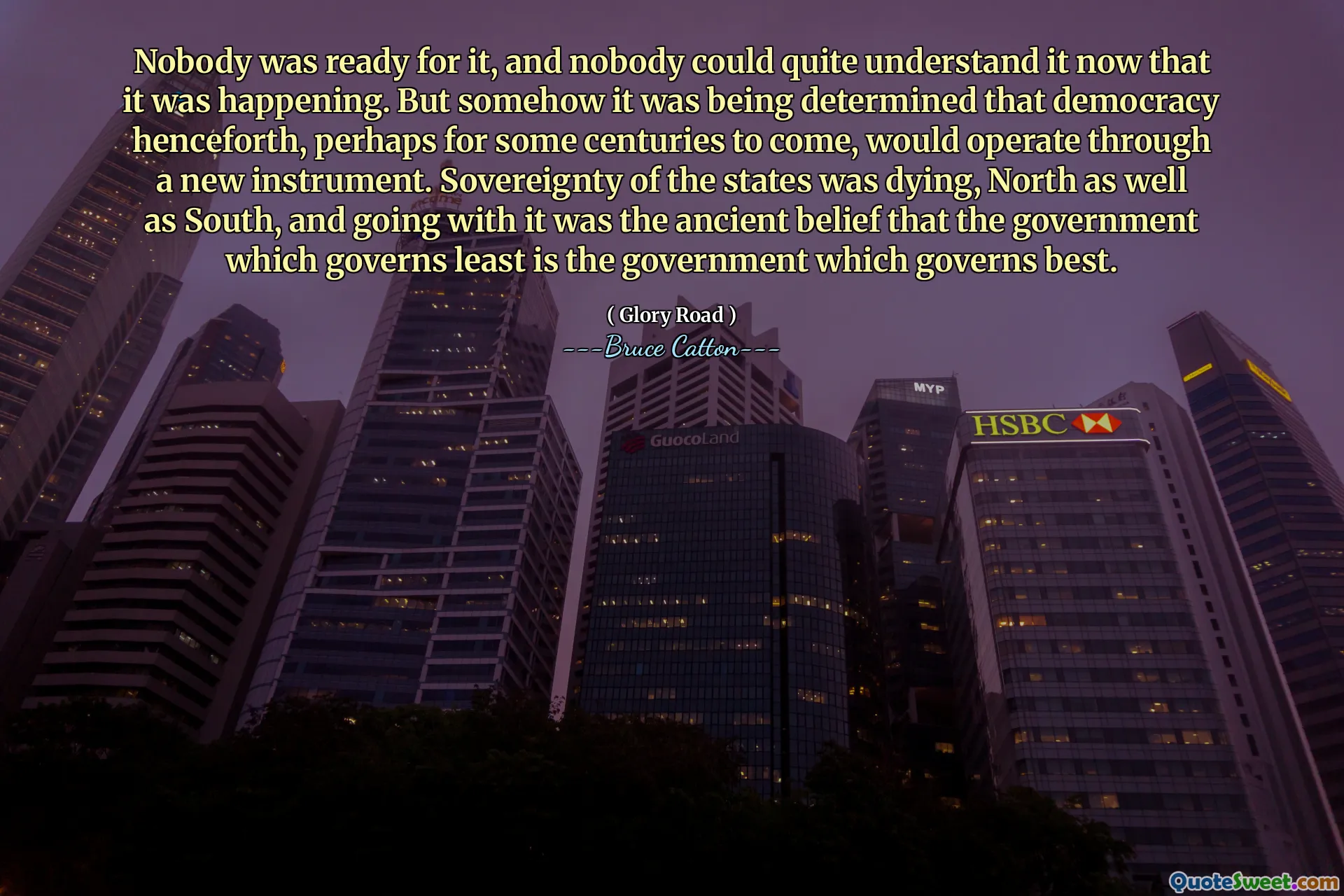
Nobody was ready for it, and nobody could quite understand it now that it was happening. But somehow it was being determined that democracy henceforth, perhaps for some centuries to come, would operate through a new instrument. Sovereignty of the states was dying, North as well as South, and going with it was the ancient belief that the government which governs least is the government which governs best.
The emergence of a new political reality was unexpected and confusing for many. As democracy evolved, it began to rely on different mechanisms, causing a shift in the traditional understanding of state sovereignty. This transformation affected both the North and the South, suggesting a significant change that would last for generations.
Moreover, the long-held belief that minimal government is preferable was being challenged. As sovereignty diminished, so did the foundational ideas about governance. The implication was clear: the future of democracy was moving towards a more involved governmental approach, contrasting sharply with historical perspectives.







